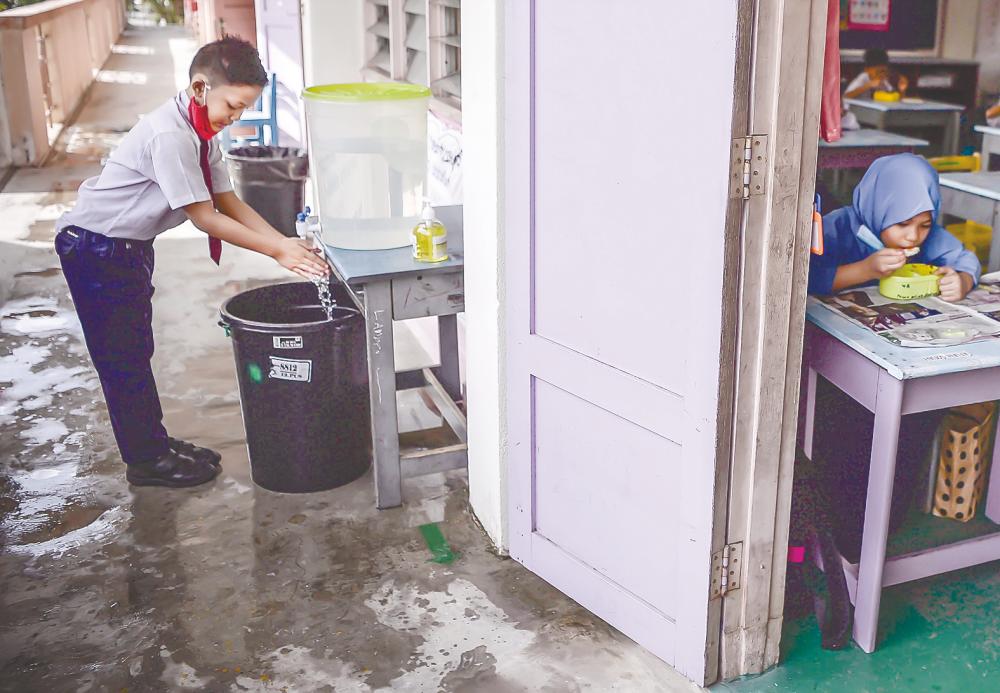PETALING JAYA: A recent spike in hand, foot and mouth disease (HFMD) cases in Malaysia is likely the result of “immunity debt” following the Covid-19 pandemic, according to Universiti Malaya Department of Medical Microbiology associate professor Dr Tee Kok Keng.
He said lockdowns, school closures and heightened hygiene measures during the pandemic significantly reduced children’s exposure to common viruses, leaving many “immunologically naive”.
Immunologically naive refers to individuals whose immune systems have never previously encountered certain pathogens and therefore lack the ability to mount an immediate response.
“With the resumption of social activities, these susceptible children are now experiencing rapid transmission of the virus, leading to a rise in HFMD cases,” Tee said, adding that while seasonal factors and changes in virus strains may also play a role, the main contributor is the population-wide gap in natural immunity.
HFMD is endemic in Malaysia and typically sees seasonal spikes, particularly mid-year and occasionally towards the end of the year.
Tee said the current surge aligns with this pattern, coinciding with school terms and Malaysia’s hot and humid climate.
“Children under the age of five remain the most vulnerable during this period. Parents should be vigilant for symptoms such as fever, rashes and mouth sores,” he added.
Tee stressed the continued importance of basic hygiene practices to limit the spread of HFMD, including isolating infected individuals, regular handwashing, disinfecting surfaces, avoiding the sharing of personal items and maintaining respiratory hygiene.
He also pointed out that while HFMD vaccines have been approved in China since 2015, they are not yet available in Malaysia.
“Perhaps it is time for authorities to conduct randomised clinical trials to assess vaccine efficacy locally,” he said.
In Kelantan, HFMD cases have increased tenfold this year.
As of April 5, 4,591 cases had been reported, up from 459 during the same period last year.
State Health Department director Datuk Dr Zaini Hussin said 87% of cases involved children aged six and below.
Meanwhile, Penang has also seen a significant rise.
Between April 6 and 12, cases jumped by 156.2% compared with the previous week, with 579 new infections and four clusters reported.
Penang State Youth, Sports and Health Committee chairman Daniel Z.S. Gooi had earlier revealed a 409% increase in HFMD cases from Jan 1 to March 22 compared with 2023.
A total of 4,585 cases have been reported in Penang as of April 12, compared with just 879 over the same period last year.
Universiti Kebangsaan Malaysia public health specialist professor Dr Sharifa Ezat Wan Puteh warned that HFMD is highly contagious, spreading via faecal-oral transmission, respiratory secretions such as sneezes and contact with contaminated surfaces such as toys or tables.
She emphasised the need for stronger public awareness campaigns to educate communities on prevention and early detection.
“Parents should isolate infected children and ensure frequent handwashing. If a child has a persistent fever or appears unusually unwell, they should seek immediate medical attention,” she advised.
While most HFMD cases are resolved without serious complications, Sharifa noted that outbreaks involving enterovirus 71 carry a higher risk of severe outcomes, including aseptic meningitis, encephalitis, acute flaccid paralysis and potentially fatal neurological or cardiovascular complications.
“In a study conducted in Taiwan, complications were reported in up to 32% of HFMD cases,” she said.









